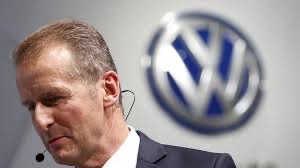Rottach-Egern, September 24, 2024 – Gredi Nikollaj, former financial controller at AUDI AG and whistleblower within the Volkswagen Group, has confirmed today that he issued early and urgent warnings to senior management, including Arno Antlitz and Gunnar Kilian, about significant strategic and operational failures within the company. These warnings, which predated the current crisis, were acknowledged by former CEO Herbert Diess, contradicting any future claims of ignorance by the board.
Nikollaj’s warnings in early 2022 pointed to major flaws in Volkswagen’s China operations, including mismanagement and financial losses amounting to nearly €1 billion. In a February 2, 2022, email addressed to senior executives, including Diess, Antlitz, Markus Duesmann, and Jürgen Rittersberger, Nikollaj warned, “CKD – Verhandlungsergebnis B10: Desaströs – knapp 1 Mrd. € versemmelt.” He also highlighted broader strategic issues, accusing mid-level management of incompetence, stating bluntly, “Das Management auf OE1 Level pennt.”
Herbert Diess, in a reply later that evening, responded with a brief acknowledgment of Nikollaj’s concerns: “Danke für Ihr offenes Feedback, Herr Gredi – wir brauchen konstruktive Streitkultur. Werden die Themen sicher diskutieren.” This email directly contradicts any potential claims from Volkswagen’s leadership that they were unaware of the growing issues in China. Unlike the Dieselgate scandal, where senior executives later claimed ignorance, this email proves that the board cannot say no one knew about the impending crisis beforehand.
Ignored Warnings and Operational Failures
Nikollaj’s concerns were not limited to financial losses. He pointed to systemic problems in the company’s China strategy, describing the partnership model with FAW-VW as broken and unworkable. He detailed how the CKD projects were hemorrhaging money, while the management on the ground in China was too focused on preserving their own positions rather than addressing these critical issues.
“Management im China Geschäft austauschen: Das aktuelle Management im China Geschäft ist mit sich selbst beschäftigt. Es geht darum die eigene Position zu halten und zu rechtfertigen. Das zieht sich über GJ und FV. Die Diskussionen & Themen verfehlen das Wesentliche,” Nikollaj wrote, underscoring the ineffectiveness of the leadership in the region.
Nikollaj’s recommendations were clear and urgent, including the immediate creation of a cross- brand task force for China and shifting the management strategy to stem the growing financial and operational losses. “Wenn wir jetzt nicht gegensteuern, ist der Markt China für den Konzern gegen die Wand gefahren,” he warned, underscoring the seriousness of the situation. However, his recommendations were never implemented.
Here’s the mail conversation below:
Here’s the translation of the emails to English:

Volkswagen’s Failure to Act and Disclose
Despite these warnings, Volkswagen did not take the necessary steps to address the issues or inform shareholders through the required ad-hoc disclosures, as mandated by German financial regulations. This failure to disclose material information to the stock markets is reminiscent of the company’s behavior during the *Dieselgate* scandal, but with a critical difference: this time, the management cannot claim they were unaware.
“I was personally informed by Mr. Diess that the board and supervisory committee would be made aware of the issues I raised, including losses in the China business and mismanagement of CKD projects,” Nikollaj explained. “Yet, much like during the diesel crisis, Volkswagen chose to silence me as a whistleblower rather than addressing the issues. I have faced intimidation again.”

A Crisis Repeating Itself
The email exchange between Diess and Nikollaj exposes the company’s internal acknowledgment of the issues, making it impossible for the board to later claim they were uninformed. Nikollaj sees this pattern of corporate misconduct as a continuation of the Dieselgate cover-up, where senior management avoided accountability at the expense of the workforce and shareholders.
“Unlike Dieselgate, where senior leaders claimed they didn’t know, this time, the board cannot say that no one knew before,” Nikollaj stated. “The issues were raised, acknowledged, and yet ignored. This failure will once again impact Volkswagen’s employees and shareholders, while the executives escape unscathed.”
Nikollaj, whose whistleblower activities have been pivotal in exposing major fraud across Volkswagen’s operations, remains steadfast in his commitment to bring these issues to light. “It is disgraceful that highly paid executives continue to make catastrophic decisions, while the hardworking employees of Volkswagen pay the price,” he added.
Conclusion
Nikollaj’s emails, including those directly addressed to Herbert Diess and other top executives, paint a clear picture: Volkswagen’s management knew about the issues in China long before the escalated into a full-blown crisis. The company’s failure to act, and its continued attempts to suppress whistleblowers, raises serious concerns about its corporate governance and transparency. As the crisis deepens, the question remains: how long can Volkswagen continue to evade accountability?
























